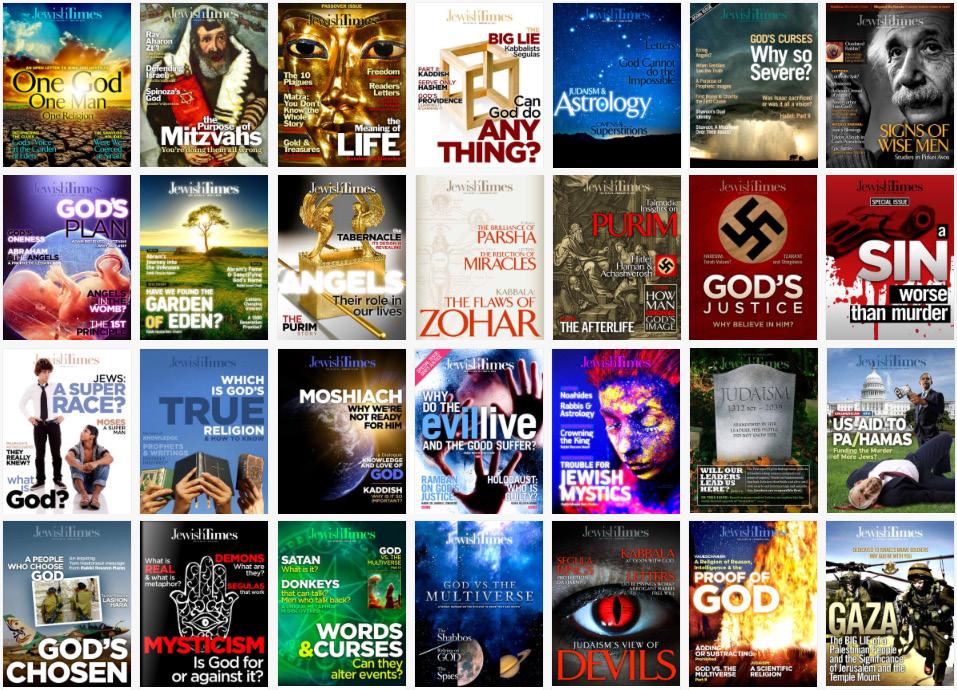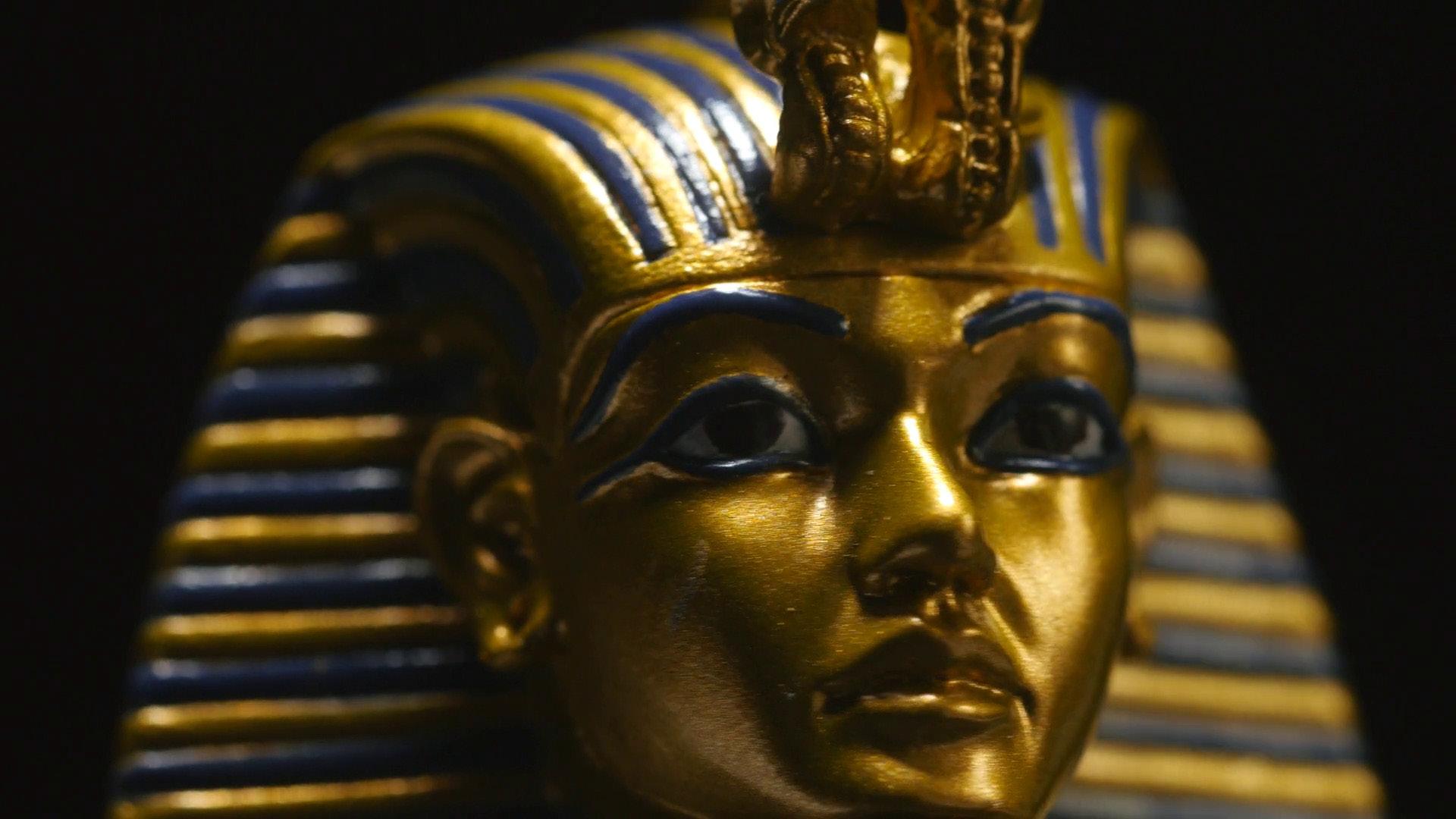Future POSSIBLE?


Biblical Records of King David









VOL. XXI NO. 8 — JAN. 27, 2023
LIFE
LUXURY vs. THE PROPER
– Student’s Notes
Rabbi Israel Chait
FOUND
Rabbi Moshe Ben-Chaim
FREE
Just click any icon in this issue





2 | WWW.MESORA.ORG JAN. 27, 2023
the
THE
JOURNAL ON TORAH THOUGHT
3 2 Plagues
DANI ROTH
What lesson is derived from God delivering 2 plagues with 1 purpose?
5
Astrology


RABBI MOSHE BEN-CHAIM
How did Pharaoh know of the Jew’s “blood” in the desert?

7 Luxury
RABBI ISRAEL CHAIT
WRITTEN BY A STUDENT
Torah reveals why man seeks luxury
13 Archeology
JERUSALEM POST
King David recorded
15 Pharaoh
RABBI REUVEN MANN
What angered Pharaoh?
Pharaoh’s astrologers continued their a empts to protect their positions. Advisors like them must continue to show their king value. us, not o ering news regularly, they lose value. is is why they continued to o er forecasts of a “savior”, and then later added that this savior was “born today.” By advancing their predictions, they sustained their value to Pharaoh, thereby protecting their posts. People in political positions don’t get there by accident…they desire power and strove to a ain positions. Man cannot know the future, as human knowledge is observational knowledge, and the future is not yet in existence to observe. e astrologers were liars.
PLAGUES
DANI ROTH
Parshas Bo starts o in the middle of the plagues, just after the plague of hail. In Exod 10:2, just before the plague of locusts, God says, “And that you may recount in the hearing of your child and of your child’s child how I made a mockery of the Egyptians and how I displayed My signs among them—in order that you may know that I am God.” How will the plague of locusts prove that He is God? To find the answer, we must look at the “stated” purpose of this plague:

They shall cover the surface of the land, so that no one will be able to see the land. They shall devour the surviving remnant that was left to you after the hail; and they shall eat away all your trees that grow in the field. (Exod 10:5)
Why did God have to make the locusts devour the “remnants of the hail”, couldn’t He have destroyed all their crops with the hail alone, without the help of the locusts? Of course He could have! There must be a
Subscriptions are free. To subscribe, send any email to join@mesora.org
invite feedback at comments@mesora.org
Articles may be reprinted without consent of the Jewishtimes or the authors, provided the content is not altered and credits are given. WWW.MESORA.ORG JAN. 27, 2023 | 3
We
–––––––––––––––––––––––––
MESORA
(CONT. ON NEXT PAGE)
| |
Two Plagues: One Purpose | Please send letters and questions to: Comments@Mesora.org |
reason that God used 2 natural methods—not just 1—to destroy the vegetation. Either one of the methods could have destroyed all the vegetation, but what is significant is that both plagues worked together for a single cause. This “working together” must have a Designer that orchestrated the identical goal of both plagues. This is seen from the verse in Exod. 10:5, “They shall devour the surviving remnant that was left to you after the hail.” Exodus 10:12 and 10:15 repeat that the locusts would devour the “remnants” of the hail.
Torah repetitions indicate significance.


The lesson is that God controls the heavens (hail) and animal life (locusts). When both realms are harnessed for a single objective, God shows there is a single control of all natural law.
This answers both questions. The identical objective in both plagues proves a divine plan, as stated in Exod. 10:2, “in order that you may know that I am God.” And the reason God used two plagues for the same objective is to show His exclusive rule over all natural realms.
This was a lesson targeted specifically at Egypt who imagined many forces were relegated to the many realms of the universe. Now, they saw Moses’ God controlled weather, animals, and all corners of the universe. ■

4 | WWW.MESORA.ORG JAN. 27, 2023
PLAGUES SHARE
Was Pharaoh Right?
Moses approached Pharaoh once again, warning him of the onslaught of the 8th plague of locusts that would devour all Egypt’s produce. Pharaoh’s servants said to him, “How long shall Moses be a snare to us? Let the men go to worship the Lord their God! Are you not yet aware that Egypt is devastated?” (Exod 10:7) Pharaoh appears to give in and free the Jews. But when Moses said to Pharaoh he would take the entire nation including children, Pharaoh told Moses “you are facing evil.” A simple understanding is that Pharaoh meant that Moses was asking too much; children aren’t needed to o er sacrifices. But Rashi cites a midrash (allegory) about what the evil (ra-ah) is:
Pharaoh said, “There is a certain star the name of which is Evil (Ra-ah). By my astrological art I see that star rising towards you in the wilderness to where you travel. It is a sign of blood and slaughter.” Later, when Israel sinned by worshipping the calf (in the wilderness of Sinai) and God intended to kill them, Moses said in his prayer, “Why should the Egyptians say, ‘God brought them out together with evil intent (ra-ah)?”

This is exactly what Pharaoh said: “Evil is before you.” Immediately, the Lord retracted the evil (killing the Jews), and He changed the blood of death to the blood of circumcision when Joshua had them circumcised later. This is the meaning of what is said, “This day have I rolled o from you the disgrace of the Egyptians” (Joshua 5:9).
In short, Pharaoh seems to astrologically forecast Jewish blood in the desert. Once in the desert, the Jews worship the Gold Calf. God wishes to punish them with death.
Moses prays to save the Jews so God doesn’t appear evil in Egypt’s eyes, saying that He took the Jews out of Egypt just to kill them. Due to Moses’ prayer, God doesn’t kill the Jews, but He doesn’t completely remove the blood, as He converts it to blood of circumcision in later years.
Questions:
1) Most glaring is the suggestion that Pharaoh’s astrology accurately forecasted the Jews fate of blood in the desert! And in fact, God would have fulfilled that forecast, had Moses not asked God to save the Jews. Are we to then say Pharaoh’s astrology was correct?
2) Does God need Moses to alert Him to avert creating an evil reputation, that God only freed to Jews to slaughter them? Didn’t God know this without Moses saying so?
3) The midrash says that after Moses prayed, “Immediately” the Lord retracted the evil. What is this “immediacy”?
4) What is the significance of the wilderness mentioned twice?
5) Why does God “convert” the blood of killing into blood of circumcision? Why not simply terminate the blood altogether! On the surface, God appears to be retracting His plan to kill the idolatrous Jews in order that Pharaoh should not be correct. That seems as odd reasoning. Why should God be concerned with what Pharaoh says, since the Jews deserved to be killed, God should kill them.
The first step is to explain the puzzling correlation between Pharaoh’s false astrology, and reality. God’s wish to kill the Jews aligning with Pharaoh’s forecast indicates that Pharaoh’s astrology partook of reality…in some respect. But as astrology is false, we must look into man’s psyche for this correlation, as that is the originator of astrology.
Man is worried and insecure about his unknown future; astrology was a method to o er man a glimpse into his future. Be it a good or evil forecast, at least with astrology, man would not be walking in the dark. The unknown is more disturbing than a known problem. So man conjured up a system based around the “mystical” heavens that can predict his future.
But besides time (the future), man worries about other matters: places.
SHARE WWW.MESORA.ORG JAN. 27, 2023 | 5
(CONT. ON NEXT PAGE)
FUTURE KNOWLEDGE
Rabbi Moshe Ben-Chaim
Some lost their way in the wilderness, in the wasteland; they found no settled place. Hungry and thirsty, their spirit failed. In their adversity they cried to the Lord, and He rescued them from their troubles. He showed them a direct way to reach a settled place (Psalms 107:4-7).
The desert is a place of isolation and hunger…a place of worries. Talmud Gittin 66a (Tosfos) says demons are seen only in 4 places, and one is the desert. This means that places of isolation generate worries, and imaginary people are conjured in man’s psyche to remove isolation. Leviticus 17:7 says, “And that they may no longer o er their sacrifices to the goat-demons after whom they stray.” The Jews sacrificed to demons in the wilderness—the open fields—possibly to appease the demons of their imagined fears. And Isaiah writes (13:19-21):
And Babylon, glory of kingdoms, proud splendor of the Chaldeans, shall become like Sodom and Gomorrah overturned by God…nevermore shall it be settled nor dwelt in through all the ages [desolate]. No Arab shall pitch his tent there, no shepherds make flocks lie down there. But beasts shall lie down there, and the houses be filled with owls; there shall ostriches make their home, and there, shall demons dance.
Again Torah teaches that desolate, isolated places like deserts produce fears in man where his fears conjure-up imaginary destructive forces.
Torah’s repeated themes—as compared to singular instances—indicate a primary phenomenon. Astrology is a response to human insecurity. Therefore, astrology aligns somewhat with psychology. Here, the psychological lesson concerns the desert—a predominant fear. Pharaoh—like all other men—possessed a fear of the desert. This explains his astrological forecast of blood for Israel in the desert. But how was he right?
Israel miscounted Moses’ descent from Sinai. When Moses didn’t arrive as they anticipated, they panicked. Had the Jews not been in the desert when they miscounted Moses descent from Sinai, they might not have been compelled to create the Gold Calf. The desert and its associated fears caused the Jews to overreact and create a Gold Calf to replace Moses. Moses prayed to God, “Let not the Egyptians say, ‘It was with evil intent that God delivered them, only to kill them o in the mountains” (Exod. 32:12). “Mountains” refers to the wilderness of the Sinai desert.
Pharaoh didn’t predict anything, but merely shared the same fear of the desert which the Jews feared. This is the alignment of Pharaoh’s astrology and the Jews’ reality.

Immediately, the Lord retracted the evil (killing the Jews), and He changed the blood of death to the blood of circumcision when Joshua had them circumcised later.
Immediacy means God was quite ready to cancel His decree; He didn’t need Moses to raise the consideration of what Egypt would say of God. But God wished that His retraction of death be clearly understood as a concession to man, to Egypt’s impression of God. Therefore He waited until Moses raised the concern about Egypt’s view of God. In this manner, God is responding to Egypt, a concession. The world’s impression of God overrides punishment of a small group of mankind.
But as the Jews sinned, a response was still warranted. In place of killing the idolatrous Jews, God converted the blood of death, into the blood of circumcision. This means that He would address the instinctual drive that leads to idolatry by minimizing human instinctual gratification. This is the purpose of circumcision. After circumcision, the Jews would have far less instinctual drive that could manifest in idolatry.
In the end, we realize that man’s fear outweighs reality. Desolate places present danger, but only from wild animals, weather, and lack of food. King David killed a bear and a lion (I Samuel 17:37). He could anticipate their natural movements and from what angle and distance he should attack. Man can use wisdom to kill wild beasts, and certainly to shield from the elements and prepare food for long journeys. But to invent demons of the mind violates reality, and Torah. Pharaoh catered to this baseless fear when he said the star Ra-ah forecasts doom. There are no forces outside of God, nature and man. This is a fundamental, and why Torah repeats the theme of demons in deserts.
We appreciate the rabbis’ ingenuity in scripting midrashim. They follow God’s style of encrypting wisdom, and the prophets’ metaphoric writings as seen on Proverbs. Encryption drives the mind to analyze, compare statements, search for the meaning of selected words, and unveil a deeper message than surface meanings. Doing so, our minds become more sharpened and probe greater depths. Such abilities are required as we are venturing to explore God’s wisdom, which, by design, is not surface information, but is many strata of interrelated wisdom. To plunge to deeper levels, one requires a mind that can analyze and interpret. Midrashim enhance these skills. ■
6 | WWW.MESORA.ORG JAN. 27, 2023 SHARE
LUXURY vs. THE PROPER LIFE

The following are notes on Rabbi Chait's recent answers to a student’s question. Student's elaborations are placed in brackets.
Maimonides: Laws on Shmitta and the Jubilee 13:13:
Not only the tribe of Levi, but every human being who has entered into the world, that his spirit generously directs him and he understands from his own thinking to separate himself to stand before God, to minister to Him and to worship Him, to know God and to go upright as God created him, and he breaks o from his neck the yoke of calculations of the masses that people chase…this person is sanctified as holy of holies and God will be his portion and his inheritance for eternity. And he will merit in this world provisions to sustain him just as the priests and Levites [are provided]. Behold, King David, peace be upon him, said, “The Lord is my allotted portion and my cup; You support my lot” (Psalms 16:5).
Question: The wise person does not discount the necessary calculations to provide for his life now, and for all his years. How then does Maimonides praise such an abandonment of calculations?
Answer: Koheles 7:29 says, “God created man upright, but they [man] have sought out many calculations.” This should read that God created man upright but they have sought out many evils” (“evil” is the appropriate contrast to “upright,” not calculations). So we must explain how the word “calculations” is more appropriate.
(CONT. ON NEXT PAGE)

SHARE WWW.MESORA.ORG JAN. 27, 2023 | 7
Rabbi Israel Chait – Student’s Notes
Numbers 21:26,27 reads:
Now Cheshbon was the city of Sihon king of the Amorites, who had fought against a former king of Moab and taken all his land from him as far as the Arnon. Therefore the proverbists [ha’moshlim] would say, “Come to Cheshbon; firmly built and well founded is Sihon’s city.”
Torah Temimah cites Baba Basra 78b: “Ha’moshlim”: these are the people who rule [hamoshlim] over their evil inclination. They say, “Come to Heshbon,” meaning: Come and let us calculate the account of the world, i.e., the financial loss incurred by the fulfillment of a mitzva in contrast to its reward, and the reward for committing a transgression (the pleasure) in contrast to the loss (damage to the soul).
“Let it be built and established”: This means that if you make this calculation, you will be built in this world, and you will be established in the World to Come.
As expressed above, “calculations” can be a good. But Koheles 7:29 refers to calculations as an evil, as it is contrasted against God’s goodness in creating man upright. What then are man’s corrupt calculations? Targum writes as follows:
God made Adam the First upright before him and just; and the serpent and Eve seduced him to eat of the fruit of the tree, because those who eat its fruit would be wise to discern between good and evil, and they brought upon him and all the inhabitants of the earth the day of death; [then] they sought to find many calculations in order to bring deficiency upon the inhabitants of the Earth.
Targum teaches that it was only after bringing mortality to mankind, that Adam sought these many calculations. These calculations refer to man's obsession with many physical preoccupations. Sforno writes, “Adam was involved in many troubles before he even ate bread.” [Simple bread is insu cient for the distorted man, who derailed the plan for simplistic physical needs, into a preoccupation with its preparation and many details, like sweetness.] God made man “upright”: to be satisfied with simple physical needs, but Adam toiled greatly for certain types of breads, to find very sweet things (Sforno).
The highest expression of human preoccupation with the physical are yachts. Men furnish these luxurious boats with the finest furniture and decorations. These are the many “sought-out calculations” Maimonides describes which the “upright” man abandons. Maimonides’ phrases of
“sought-out calculations” (cheshbonos ha’rabim), “upright” man (yashar), and “which God made” (she’assahu elohim), are clear references to Koheles 7:29.
The question was, “The wise person does not discount the necessary calculations to guide his life now and for all his years. How then does Maimonides praise such an abandonment of calculations?” The answer is that Maimonides refers not to financial matters per se, but to the same calculations that King Solomon refers to: preoccupation with obtaining the finest and most exclusive physical luxuries completely unnecessary for the upright life God intends for man. [Maimonides explains that if man can follow the simpler and upright life which is God's plan, and he abandons what the rest of society seeks, namely the yoke of unlimited luxuries, he then lives properly and earns God’s providence. Maimonides’ words bear this out as he says about this man:]
He separates himself to stand before God, to minister before him and to serve Him, and to know God. He goes upright as God created him and he breaks o his neck the yoke of calculations of the masses that people seek, he thereby renders himself holy of holies [distinct from all other men] and God is his portion and his inheritance forever.
[All this refers to this unique individual's ability to abandon society [their preoccupation with physical security] and instead, to follow God. The perfected man does not follow “what people seek.” Why? Because, “God is his portion.” He selects God over man. He selects simplistic physicality over distracting extravagance. He selects God’s security over imagined financial security: “God is his portion and his inheritance forever” as he knows the true eternality of our existence. Upright man is compelled to abandon the physical which distracts his mind from the pleasure of wisdom and seeking God.]
Targum says preoccupation with the physical follows the onset of mortality. [This is because mortality created much fear in Adam, explaining why God blocked the path to the Tree of Life immediately after Adam and Eve ate from the Tree of Knowledge. With the onset of mortality—the punishment for eating of the Tree of Knowledge—came the fear of death and an immediate obsession with the physical, expressed in man's preoccupation with securing many fine physical acquisitions.] This is Targum’s message: “and they brought upon him and all the inhabitants of the earth the day of death; and they sought to find many calculations…” These calculations—these obsessions with the physical—were a direct result of mortality. [They were man’s attempt to regain immortality through grabbing on to the physical in every possible expression.] ■
8 | WWW.MESORA.ORG JAN. 27, 2023







WWW.MESORA.ORG JAN. 27, 2023 | 9 Original, thought provoking articles on Torah, Israel, science, politics and readers’ letters. Enjoy all 628 back issues free: www.Mesora.org Subscribe to the FREE Jewishtimes. Subscribe by emailing: Join@Mesora.org SHARE

1 0 | WWW.MESORA.ORG JAN. 27, 2023 SHARE Designers of the Jewishtimes & Mesora.org Building loyalty and sales through design strategies 516.569.8888 NYDesign.com Branding UI/App Design Wires/Prototypes App Store Design Dataviz/Charts Infographics Iconography Illustration Websites Landing Pages Editorial Design Presentations Social Media Advtg/Promo Animation Packaging
What is the purpose of gematria?

Can we truly learn anything from the numerical representation of words?
What is beneath these creative yet apparently simplistic interpretations?
While jointly pursuing semichah and a PhD in mathematics, it seemed natural for Elie Feder to love gematria. However, he was bothered by these compelling questions. That is, until he discovered the purpose of gematria.
Gematria Refigured presents the discoveries that led to the author’s transformation from a gematria skeptic to a gematria lover. It develops a theory which elucidates how the Torah and Chazal use gematria to direct us toward a very specific type of idea. Through its many examples, this work illustrates how gematria can help us uncover novel insights, while providing interesting and clearly formulated perspectives into many mitzvos, themes, and stories in Tanach.



שמוח םיאיבנ םיבותכ ארמג הפקשה הכלה א WWW.MESORA.ORG JAN. 27, 2023 | 1 1 SHARE
Gematria is a polarizing topic. While many love it, many others view it with skepticism.
Buy on Amazon, click below: bit.ly/Gematria1

1 2 | WWW.MESORA.ORG JAN. 27, 2023 Thought-provoking articles on Torah, Israel, science, politics and readers’ letters. 25 Years. 630 Issues Share a FREE subscription. Click icon below: SHARE
WRITTEN RECORDS OF BIBLICAL KING DAVID DISCOVERED BY RESEARCHERS
By JERUSALEM POST STAFF Published: JANUARY 12, 2023
The stele was discovered in fragments in 1868 roughly 15 miles east of the Dead Sea and currently resides in the Louvre museum in Paris. While it was damaged in 1869, a paper-mache impression of the inscription was captured before the damage occurred.

The slab is etched with a lengthy account of King Mesha of Moab going to war with Israel. The events described correspond, albeit imprecisely, with a similar account in Kings II chapter 3.
The House of David
The text contains allusions to the Israelite god as well as the "House of David" and the "Altar of David." However,
WWW.MESORA.ORG JAN. 27, 2023 | 1 3 SHARE (CONT. ON NEXT PAGE)
Photo: Detail of a portion of lines 12–16, reconstructed from the squeeze. The middle line (14) reads "Take Nabau against Israel.”(Photo credit: Wikimedia Commons)
The Mesha Stele, also called the Moabite Stone, is a basalt stone slab that has provided historians and linguists with the largest source of the Moabite language to date. Researchers have only now been able to verify with a considerable degree of certainty that the stele contains explicit references to King David.
until today, scholars could not be entirely sure that these references to King David were being correctly deciphered.
The Moabite phrase "House of David" consists of five letters: bt dwd. "Bt" is similar to today's Hebrew word for house - bayit - which is beit in its construct form. And "dwd" can be thought of like modern Hebrew's daled vav (the letter, in this case, is actually waw) daled which spells the name "David."
Until now, only the first and fourth letters of the series, bet and waw were completely clear. In a late-2022 article entitled "Mesha's Stele and the House of David" in the winter issue of Biblical Archeology Review researchers André Lemaire and Jean-Philippe Delorme re-examined the evidence. They write: "In 2015, a team from the West Semitic Research Project of the University of Southern California took new digital photographs of both the restored stela and the paper squeeze. The team used a method called Reflectance Transformation Imaging (RTI), in which numerous digital images are taken of an artifact from different angles and then combined to create a precise, three-dimensional digital rendering of the piece.
"This method is especially valuable because the digital rendering allows researchers to control the lighting of an inscribed artifact, so that hidden, faint, or worn incisions become visible."

More recently in 2018, the Louvre took these new, high-resolution pictures and projected light onto them coming directly through the 150-year-old squeeze paper. Thus, researchers were able to glean a much clearer picture of the ancient records. This, explain Lemaire and Delorme, is how they were able to see evidence of the other three letters, taw (like modern Hebrew tav), dalet, and dalet.
How similar are Moabite and Ancient Hebrew?
Encyclopedia Britannica characterized the relationship between Moabite and the Hebrew of its time as differing "only dialectically." According to Dearman and Jackson's 1989 book Studies in the Mesha Inscription and Moab: “It is probable that Moabite and Hebrew were, for the most part, mutually intelligible.” ■
1 4 | WWW.MESORA.ORG JAN. 27, 2023 SHARE
Why Pharaoh Got Angry
This week’s Parsha, Bo, describes the remaining Makkot (blows) that Hashem visited on Pharaoh and his country. Amazingly, the same Pharaoh who had been chastened by the devastating Barad (Hail) Arbeh (Locust) and Choshech (Darkness), to the extent that he was willing to grant concessions from his hard-line stance, still returned to a policy of unyielding stubbornness once the blows were gone. How quickly attitudes can change.
But all procrastination ceased when Makkot Bechorot (Slaying of Firstborn) suddenly broke out at midnight for, “there was no house in which there was no dead.” At that point, everything changed, and now the Egyptians could not move quickly enough to get the Jews out of their land.
A seemingly strange element of the narrative is the apparent immunity which Moshe enjoyed from the retaliation of Pharaoh. Moshe came and went from the palace as he pleased, and none of Pharaoh’s ministers sought to harm or even belittle him. In fact, he enjoyed significant esteem among the entourage of Pharaoh, who viewed him as a great man. Rather, it was Moshe who rebuked them and their king for their failure to obey Hashem.
Yet, in the final meeting with Pharaoh after Moshe warned about the imminent advent of Makkot Bechorot suddenly, and seemingly out of nowhere, Pharaoh declared, “Go from me, and watch out for yourself. Never see my face again! For on the day you see my face, you shall die” (Shemot 10:28).

It should be noted that this outburst was very uncharacteristic of the atmosphere in which Moshe and Pharaoh interacted. Thus, the question arises, what caused Pharaoh to suddenly lose his calm demeanor and treat Moshe like a hated enemy?
I would like to suggest a possible explanation. In the course of his admonitions to Pharaoh, Moshe said, “You, too, will send with us sacrifices and burnt-offerings, and we shall offer them to the Lord our G-d” (Shemot 10:25). At first glance, these words are difficult to comprehend. If they were intended as a prediction that this would actually happen, it must be noted that when the Jews left Egypt, no word is recorded of Pharaoh sending along sacrifices on his behalf. So why would Moshe say such a thing?
Interestingly, the Ibn Ezra interprets the words of Moshe in the following manner; “You too are
WWW.MESORA.ORG JAN. 27, 2023 | 1 5 SHARE (CONT. ON NEXT PAGE)
Rabbi Reuven Mann
obligated to place in our hands sacrifices and burnt-offerings to offer on your behalf.” In my opinion, it was these words of Moshe which triggered Pharaoh’s harsh outburst.
For, until this point, Moshe had not sought to impose the Jewish religion on Egypt. He had simply demanded, in the name of G-d, that Pharaoh respect the religious rights of the Jews and allow them to sacrifice to Hashem. But now Moshe was going further and saying, in effect, that our G-d is not just for us but is the King of Kings whom the entire world must recognize and worship. Thus, the implied message was that Egypt should renounce its idolatrous practices and worship only the Creator of Heaven and Earth.
This, I believe, is what exacerbated Pharaoh and prompted his threat against Moshe. His kingship was very much rooted in Egypt’s religious system and if that were to be undermined by Moshe’s call to worship Hashem, his position would be in grave jeopardy. Pharaoh felt threatened by this new endeavor of Moshe and needed to put a halt to it.
But he was in a bit of a dilemma. He couldn’t slay Moshe outright because his ministers were in awe of him and, also, he feared the retaliation of Hashem. So he endeavored to deter Moshe from further evangelical pursuits by threatening him with death if he should persist. Moshe, however, could not leave the impression that he was intimidated by Pharaoh’s threats. He said, “You have spoken correctly. I will no longer see your face.”
Moshe thus agreed that, yes, we will not meet again, but that is because I have finished my business with you and I have nothing more to say to you. And that is why you will not see me again.
Why did Moshe take it upon himself to tell Pharaoh what he had to do? Why wasn’t he content to stay focused on the need of the Jews to worship Hashem?
Why meddle into Egypt's religious affairs and risk the ire of its ruler?
I believe that Moshe acted in accor-
dance with the religious program of Avraham Avinu. After Avraham discovered the existence of the true G-d, he made it his mission to instruct all mankind in the knowledge of the Creator and His Ways of justice and compassion. In doing so, Avraham did not resort to religious coercion, but to the force of reason and rational argument.
According to the Rambam, Avraham believed that one who truly loves Hashem must strive to make His Existence recognized by all people. Moshe followed in the footsteps of Avraham. He taught Pharaoh about the existence of Hashem and His absolute control over nature by performing the miraculous “signs and wonders” with which he had been provided.
He instructed Pharaoh that Hashem is a G-d of justice who condemns his terrible mistreatment of the Jews. And Moshe told Pharaoh that he needed to repent for his sins by offering sacrifices to Him which the Jews would be more than happy to bring, on his behalf.
Moshe thus acted according to the example of Avraham Avinu who sought to sanctify G-d’s Name in the world. This is the eternal mission of we, his descendants, the Jewish People. May we merit to fulfill it.
Shabbat Shalom.
Dear Friends,
My newest book, Eternally Yours: G-d’s Greatest Gift To Mankind on VaYikra was recently published, and is now available at: https://www.amazon.com/dp/B09SHRXS3Q
I hope that my essays will enhance your reading and study of the Book of VaYikra and would greatly appreciate a brief review on Amazon.com.
Additionally, for those in Eretz Yisrael, my books are available at David Linden’s bookstore located at Emek Refaim Street 21, Jerusalem and at Pomeranz Book store, Be’eri 5 Jerusalem. They are very nice stores to visit and browse.
—Rabbi Reuven Mann
1 6 | WWW.MESORA.ORG JAN. 27, 2023 SHARE



1 8 | WWW.MESORA.ORG JAN. 27, 2023 SHARE HOME REPAIR DONE RIGHT! (347)489-2048 B B G HANDYMAN &POWERWASHING SERVICES • Competitive Prices • Fully Insured • 20 Years Experience • Free Estimates BEFORE AFTER BEFORE AFTER ALL HOME IMPROVEMENTS SERVING ORANGE COUNTY, NY www.BBG HandymanServices.com Special! Vinyl Siding Powerwashing $225.00 includes algae, mildew, and mold treatment (high ranch bi-level homes) Deck Powerwashing & staining $100.00 o total price
2 MUST READS THIS WINTER
Tohar Hayihud is a masterpiece of intelligent Torah thought. The Rabbi cites authentic Torah sources, Rishonim and great minds who, over the centuries, have rejected Kabbala’s claims as contrary to Torah.


Free to download: www.mesora.org/toharhayihud.pdf

Mezuzah: Protective Amulet or Religious Symbol? addresses the popular belief in segulahs and protective devices. Martin L. Gordon refers to Torah and reason as the authorities on true Jewish concepts.
Free to download: www.mesora.org/mezuza-gordon.pdf MESORA
WWW.MESORA.ORG JAN. 27, 2023 | 1 9
FUNDAMENTALS


2 0 | WWW.MESORA.ORG JAN. 27, 2023 WORRIED? ABOUT YOUR BUSINESS, YOUR CHILDREN? WWW.FAPS.COM 800-258-8028 FIRST ALLIANCE PROTECTION SYSTEMS REMOTE MONITOR YOUR HOME OR BUSINESS FROM YOUR SMARTPHONE OR PC: • VIEW MULTIPLE LOCATIONS. • LIVE / RECORDED FOOTAGE. • AFFORDABLE PEACE OF MIND. • FROM A LEADER. FREE DEMO...


















































